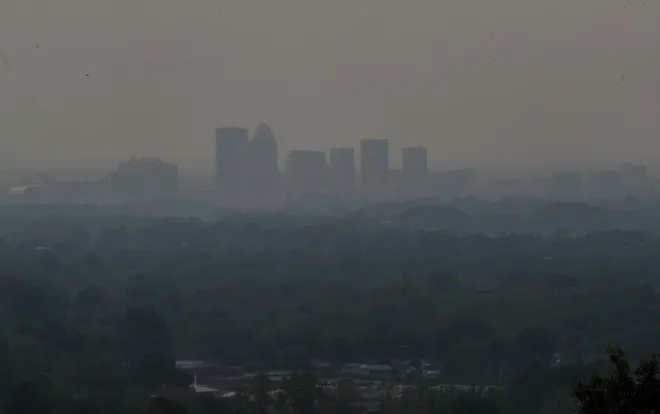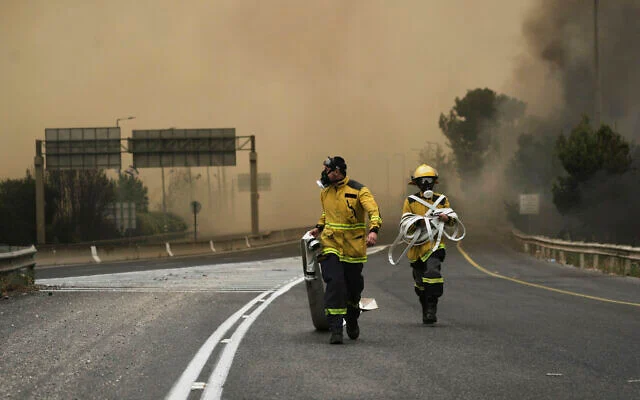Smoke from wildfires in Canada is sweeping across the United States, prompting air quality alerts in several states as dense haze continues to affect millions of Americans. The wildfires, primarily burning in western and central Canada, are sending thick plumes of smoke southward, covering parts of the Midwest, Northeast, and even reaching as far as the southern U.S.
The National Weather Service issued air quality alerts in multiple states, including Michigan, Ohio, Pennsylvania, New York, and Kentucky. The alerts warn residents of unhealthy air, especially for sensitive groups such as children, the elderly, and people with respiratory conditions.
According to the Environmental Protection Agency (EPA), air quality index (AQI) readings in some cities soared into the “unhealthy” and even “very unhealthy” categories on Friday. In Chicago, Detroit, and Pittsburgh, visibility was significantly reduced due to the lingering smoke, while public health officials urged people to limit outdoor activities and wear masks if necessary.
Meteorologists say weather conditions, including a stationary high-pressure system and northerly winds, are contributing to the prolonged presence of smoke in the lower atmosphere. As of Friday, the smoke had reached as far south as Tennessee and North Carolina.
Canadian authorities reported that hundreds of wildfires are currently burning across several provinces, with Alberta and British Columbia being among the hardest hit. Firefighters are battling the blazes with international support, but dry conditions and gusty winds continue to hinder containment efforts.
In the U.S., schools and outdoor events in affected areas are adjusting plans or canceling activities altogether. Some health departments have distributed guidance on how to reduce smoke exposure, including keeping windows closed, using air purifiers, and avoiding strenuous activity outdoors.
Air quality experts say this is the second major smoke event in the U.S. this year linked to Canadian wildfires, and warn that as fire seasons grow longer and more intense due to climate change, such transboundary air pollution events may become more frequent.
The Centers for Disease Control and Prevention (CDC) emphasized the health risks associated with fine particulate matter (PM2.5) found in wildfire smoke. Prolonged exposure can aggravate asthma, lead to cardiovascular issues, and increase the risk of hospitalization.
Local governments across the U.S. are monitoring the situation closely and advising residents to follow air quality updates through official channels. Meteorologists expect a shift in wind patterns may eventually disperse the smoke in the coming days, but until then, poor air quality is likely to persist in several regions.
Source; USA Today



